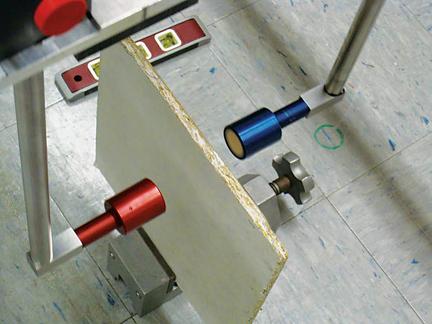Recyclable materials production company plans to build in Des Moines

ReWall create building material from recycled matter.
March 21, 2011
A company that started in Europe will introduce a whole new idea of recycling to Iowa.
Using beverage cartons and other recyclables, ReWall produces building materials from the substances for wallboards, underlayments and insulation needed for constructing buildings.
“ReWall is a 100-percent recyclable building material, and we make boards for floor underlayment, tile backer, basically anywhere you can use plywood or osb, or cement board,” said David Phillips, CEO of ReWall.
Currently the company has no facilities located in the United States. Phillips, however, is raising money to establish the first facility in Des Moines.
“We’re going to have seven locations in the U.S., and we’re going to set up our other six locations in big cities where there is a lot more recycling activity,” Phillips said. “As we get ready to set up a site, we’re going to look at and see who’s doing the best recycling, what’s our best source of materials, and we want to make sure everyone is going to buy it.”
The ISU community can take part of its waste stream and turn it over to a company like ReWall. ReWall can then use that waste for their raw material and give back boards to the school, said David Utrata, associate scientist for the Center of Nondestructive Evaluation.
Once established in Iowa, Utrata stresses the benefits of reducing the amount of waste produced in landfills.
“The main selling points are that you’re removing a nasty bit of the waste stream that would be a hassle to deal with,” Utrata said. “You’re also using waste to do something useful, you’re not depleting natural reserves.”
Besides reducing the waste stream, Rewall can also benefit Iowa State by meeting LEED-certified building requirements.
“If you spend federal money in a building project, you have to be LEED certified; and [ReWall is] a 100-percent post-consumer recycled product,” Phillips said. “You can’t get higher LEED points than many other places than us.”
Phillips also stresses that with such material kept out of the landfill, it also prevents contamination for soil and water quality as well as taking those harmful contaminants and trapping them in something harmless.
To create the material, ReWall shreds the recyclables, compresses the pieces with heat and pressure and makes what the company uses for boards and other building materials.
“You think of a coffee cup, its plastic-coated fibers, so you don’t just turn it over for fiber reuse or plastic reuse, you have to go through a process where you strip the plastic off of the paper and then you have two separate products,” Utrata said.
“[ReWall will] just take the plastic-coated fibers or papers, shred that up and through heat and pressure, create a product that has no adhesives. It’s got good mechanical and acoustic properties.”
By producing walls and underlayments from waste, ReWall will provide the United States with local and affordable building material.
“We’re going to make an affordable price material available,” Phillips said. “Our input is currently waste, so our cost of raw materials is lower than a lot of our competitors because we’re using technology to convert it into something valuable.”
The company hopes to have its first facility established in Des Moines soon. Once built, ReWall plans to get the community involved by asking them to recycle their cartons and initiate school recycling programs.
By educating students about recycling, the company hopes to raise another generation of recyclers.
















